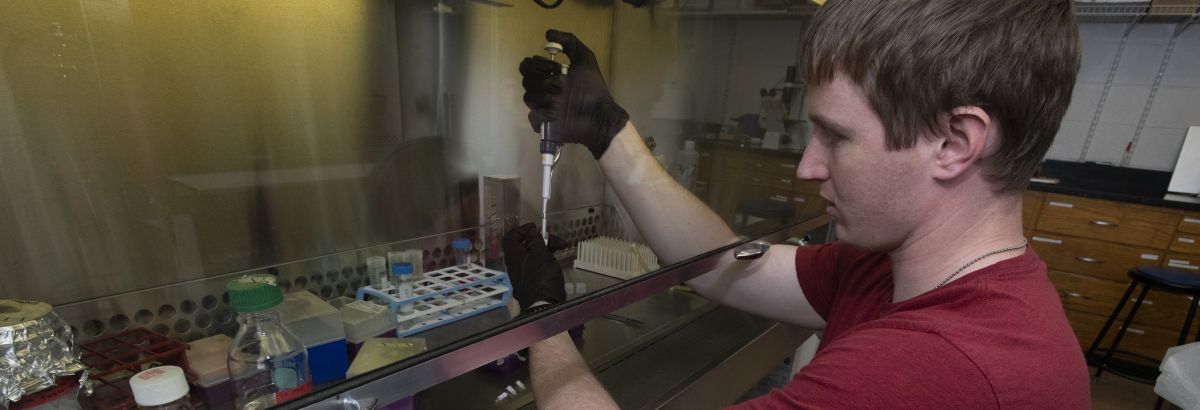Graduate Program Information
Welcome to the website for the 老虎机攻略's graduate programs under the Molecular and Biomedical Sciences (MBS) umbrella: the single point of entry for information about Master's and Doctoral degree programs in:
- Biochemistry and Biophysics
- Cellular, Molecular and Microbial Biology
- Neuroscience
- Pharmaceutical Sciences and Drug Design
- Toxicology
A single application with one application fee allows prospective students to apply to one or more of these graduate programs. First year students in any of the Molecular and Biomedical Sciences programs pursue coursework tailored to a single degree program, but may undertake research rotations with faculty in any of the MBS graduate programs. This is the first stop to exciting interdisciplinary and collaborative research in the heart of the Rocky Mountains.
This website is a resource for prospective students to discover the world-class research conducted by our 老虎机攻略 faculty and the diversity of research disciplines represented among our Graduate Programs. For more information, visit the websites of the individual graduate programs where prospective students will find information about specific program curricula and learn about the research interests of program faculty members. We encourage prospective students to contact faculty directly to learn more about the research in their labs.
Finally, prospective students can find information on how to submit an application for graduate study for all of the programs under the Molecular and Biomedical Sciences umbrella under How to Apply.
Biochemistry and Biophysics
To understand cellular processes at the level of atomic structure, chemical mechanism, and energetics is the focus of research in the Biochemistry and Biophysics (B & B). B & B faculty apply biochemical methods and a variety of spectroscopic and diffraction methods to investigate the structure and dynamics of macromolecules and their complexes in a range of biological contexts, including cellular signal transduction, neurobiology, virology, enzymology and the cryptic messages hidden in DNA sequences.
Cellular, Molecular and Microbial Biology
The Cellular, Molecular
Neuroscience
Faculty available to mentor students come from a number of different 老虎机攻略 Colleges and Departments and specialize in a variety of perspectives and approaches,
Pharmaceutical Sciences and Drug Design
The Pharmaceutical Sciences and Drug Design (PSDD) program is aimed at designing effective new drug therapies while minimizing adverse effects. Research in the program includes a diverse range of therapeutic areas including cancer, cardiovascular, dermatological, immune-mediated, neurological, and psychiatric diseases. Students receive didactic and laboratory training in the design and development of pharmacological compounds including the disciplines of molecular and cellular pharmacology (drug target and biomarker discovery), medicinal chemistry (drug design and synthesis), pharmacokinetics (drug absorption, distribution, metabolism, and elimination), pharmaceutics (drug delivery and formulation), pharmacogenomics (genetic basis for drug response), and toxicology (drug-induced toxicity). A unique feature of the PSDD program a focus on health equity for rural and underserved populations.
Toxicology
The Toxicology program brings together faculty associated with the that address the common biomedical theme to improve human health through a better understanding of the impacts of environmental agents in causing or exacerbating diseases. A focal point of interaction for investigators is on acute and chronic inflammation as the driver for most human diseases. Research also encompasses the immune system in the modulation of inflammatory responses to environmental toxins, including nanoparticles and epigenetic factors in toxicology.
